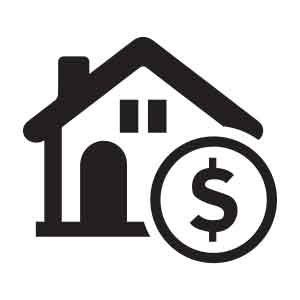VA Home Inspection Checklist
A good building inspector will follow a checklist and take a detailed look at the following features of the property:
· Exterior of the house (including walkways, siding, flashing and trim, decks and patios)
· Roof (including shingles, flashing, moss growth etc.)
· Gutters and downspouts
· Attic and insulation (including ventilation from exhaust fans and dryers)
· Doors and windows (including sills, sash, screens and mechanics)
· Floors and ceilings
· Steps, stairs and railings
· Countertops
· Fireplaces (if any)
· Smoke and Carbon Monoxide Detectors
· Foundation and floor structure
· Wall structure
· Furnace and air conditioner where applicable
· Plumbing (including hot water heater, sinks, shower and tub, drains)
· Electrical (including wiring, circuits, light fixtures, GFCI regulations)
· Rodent, termite and other pest damage evident or areas that are susceptible
· Exterior threats (such as trees too close to the house, moss on the structure, grading and drainage issues)
· Radon and lead paint testing (may be an additional cost)
Over the past 10 years, digital photography, WIFI and other technology has drastically improved the quality of home inspection reports. It’s not abnormal to receive a 50 page document complete with pictures, descriptions, recommendations and summaries for each area under examination. Having this report in hand allows you to go back to the seller with documentation of things that should be fixed before the sale proceeds. If the report uncovers major issues, you could work with the seller to renegotiate the selling price. If you are not able to come to an agreement, as long as you have the home inspection contingency in your purchase and sale agreement, you can walk away from the sale with no legal repercussions.
Don’t think that home inspections are just for older houses either. Even a brand new house can have underlying problems that you can miss at first glance. There are many tradesmen and contractors involved in building a house. Plumbers, carpenters, electricians, sheet rockers, masons, and painters just to name a few. You never know what shortcuts one or all of them
may use to get through a job quickly. In the end, a home inspection gives you peace of mind in knowing that the house you’re buying is sound. It’s more than worth it.
Many home inspectors are independent contractors, and they do not all hold to the same standards. You want to find a reputable, licensed and insured inspector that will do a thorough inspection of your potential new home. How do you go about finding the best?
If you happen to know someone who recently bought or sold a house, ask them for a recommendation. Word of mouth is still the most reliable way to hire good contractors. Your real estate agent may have some good recommendations as well. Real estate agents get to know most people in the business. They have a wealth of knowledge from past clients on which inspectors do the best job.
Another good place to check out is trade organizations. The American Society of Home Inspectors can provide you with a list of local inspectors in your area. In order for an inspector to become certified by the ASHI, they need to pass more rigorous examinations and perform a minimum of 250 professional inspections.








11 Comments
Leave your reply.